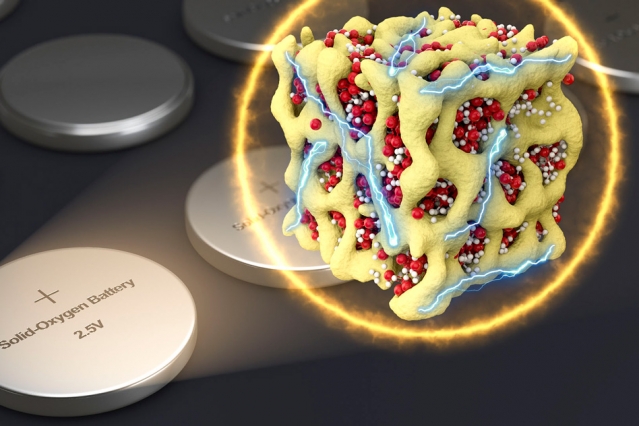
Image: MIT
New lithium-oxygen battery technology proposed by researchers from MIT, Argonne National Laboratory, and Peaking University, promises a scalable, cheap, and safe option in energy storage.
There is immense promise for lithium-oxygen batteries in such applications as electric cars and portable electronics. In fact, they are between five and 15 times more efficient than lithium-ion batteries in transportation applications due to their high energy output potential in proportion to their weight.
But there have been complications in developing and especially implementing these batteries in the marketplace. Primarily, they’ve been known to waste energy and degrade quickly.
But this new study, co-authored by ECS member and past IMLB chair Khalil Amine, states that the theoretical potential for lithium-oxygen batteries could be met while overcoming some of the biggest barriers prohibiting the technology.
Once of the primary focuses of the group was overcoming the mismatch in voltages that happens in charging and discharging the battery. Because the output voltage is more than 1.2 volts lower that that used to charge, there is typically a significant power loss.
“You waste 30 percent of the electrical energy as heat in charging,” says Ju Li, professor at MIT and co-author of the paper. “It can actually burn if you charge it too fast.”

